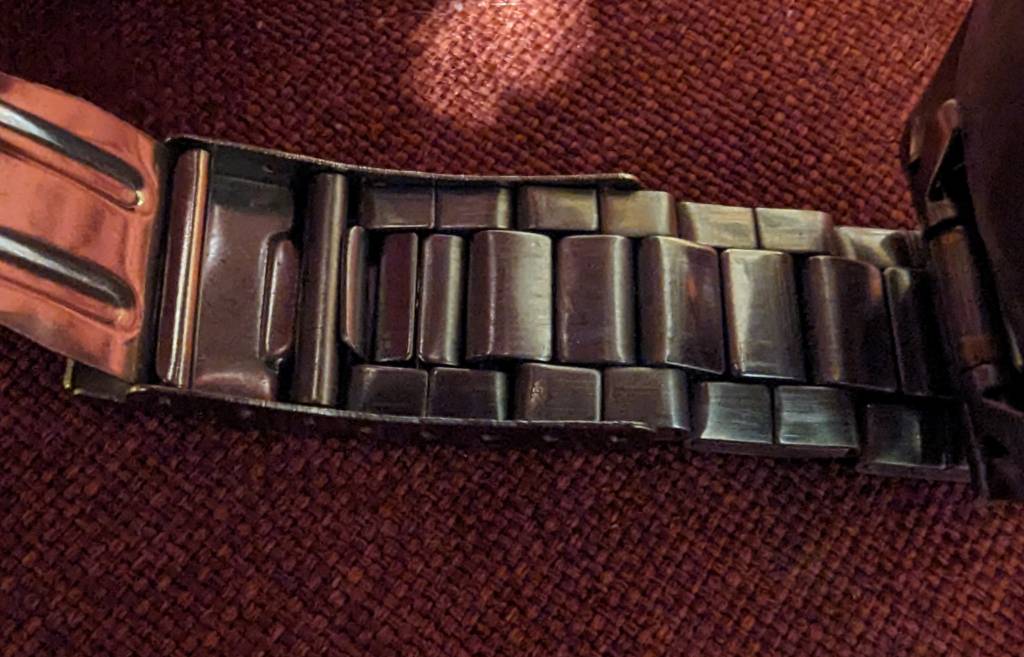this post was submitted on 25 Feb 2024
87 points (94.8% liked)
Asklemmy
43863 readers
1498 users here now
A loosely moderated place to ask open-ended questions
If your post meets the following criteria, it's welcome here!
- Open-ended question
- Not offensive: at this point, we do not have the bandwidth to moderate overtly political discussions. Assume best intent and be excellent to each other.
- Not regarding using or support for Lemmy: context, see the list of support communities and tools for finding communities below
- Not ad nauseam inducing: please make sure it is a question that would be new to most members
- An actual topic of discussion
Looking for support?
Looking for a community?
- Lemmyverse: community search
- sub.rehab: maps old subreddits to fediverse options, marks official as such
- !lemmy411@lemmy.ca: a community for finding communities
~Icon~ ~by~ ~@Double_A@discuss.tchncs.de~
founded 5 years ago
MODERATORS
you are viewing a single comment's thread
view the rest of the comments
view the rest of the comments


It certainly has pins in the normal places. They must have been ground down after they were installed, making them extremely difficult to see.
If it was mine, I would grab each side of a link with a pair of pliers, and alternate between gently squeezing the sides together, and pulling them apart, with a very slight twisting action. I'm not trying to take it apart yet, just get enough movement in the pins to be able to identify them. Once found, remove like normal.
They may be extremely difficult to reinstall...
You could try some of the tricks used to expose the layers in Damascus steel: etching with various acids. The differing steels of the pins and the links may etch differently, revealing the pins.
Edit: at the time of this edit, not one other comment has even attempted to address OP's question. The only other suggestions have been to move the pin in the clasp (which is so bleedingly obvious that I can't believe that OP could have missed it; OP needs adjustment beyond the limits of the clasp) or to just buy a new band. (Again, bleedingly obvious).
What I described is certainly feasible for a patient and moderately skilled craftsman, and does not preclude the "advice" presented in other comments.
OP, consider hitting the pliers with an engraver while gently pulling. The vibrations may be enough to move it. If you're familiar with how metal reacts to a torch and can avoid overheating, a butane torch might help the pins begin to move.
Remember: you're only trying to find the pins. You'll need to punch them out.
All your instructions are going to do is break that strap.
If you're aggressive at it, sure. You must not exceed the limits of elastic deformation of the pins.
Gentle manipulation and a ton of patience. The time and effort required will far exceed the value of the band, but it's feasible.
Those pins generally only deform in a plastic manner. Those side covers are crimped in by a machine.
And if the effort, skill, and tools required exceed the average person's ability then it is effectively not possible.
I repair machines for a living, these straps aren't something that many people could remove a link without fucking up.
Monetary value is not the only measure of value.
You have no idea as to OP's level of skill, nor their motivation. They may be interested in attempting an uneconomical repair for sentimental reasons; they may be trying to determine the feasibility and just need to know what it will take. Or they may be trying to learn a skill they could apply to a more expensive band in the future.
Even if the pins break, they can still be drilled out and replaced entirely.
Another option would be to break off two links, and swap in a spare link from another strap which does have removable pins. Or pop out the link, and braze the ends together. Sure, they would be fused, but we do that with spines, and they remain reasonably functional.
As for your crimped pins; a slot cut across the band to the depth of the crimp would free the pin, and could be repaired with silver solder.
But, we never get to explore any of these options, because we didn't feel like engaging in any sort of craftsmanship, and skipped straight toward replacement.
Boring.
Dude, not everything can or should be repaired
This is coming from someone who makes thier living on repairing all manner of items.
That sort of strap is super cheap and meant to be easily replaced. Straps are meant to be the fail point of a wristwatch.
The movement is the part that should be repairable.
You have some serious tunnel vision if a strap ruins the sentimental value of a watch.
Give up move on.